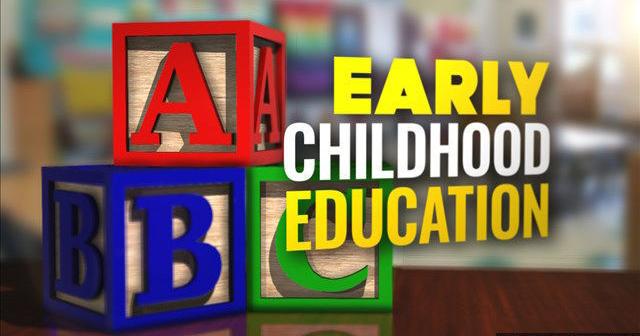- Coffee Fiix
- Posts
- An efficient way to create more teachers
An efficient way to create more teachers

Evaluations! Have you had your evaluation yet? Or, if you are an evaluator, have you conducted all your evaluations yet?
With Spring comes evaluations on top of all the other duties teachers must do, on and off the clock. Evaluations are necessary, as is the case with many professions. Yet, teacher evaluations are the most stressful of them all. That’s probably bias of me only because I’ve been in education for over a decade and have not only been evaluated but have also conducted evaluations. Yet, I constantly think about whether the evaluation process needs to be stressful. Can it? Or maybe the question is, should it? There can be an argument that some stress is necessary, especially with an impactful job like teaching because you need to be evaluated in a way that ensures you are doing what you need to do. After all, what you do in the classroom can literally impact the livelihoods of an individuals future. What do you think?
Just something to think about. Cheers to your morning brew ☕
In today’s newsletter
Becoming a teacher: Another path to certification
Teacher Evaluation: Maybe the evaluation process needs to be evaluated?
Embracing the Past: Teaching history that include acknowledging the LGBQT community
Para to Certified Teacher
Anyone and everyone in the education field knows we have a teacher shortage, be it at the elementary, middle, or high school levels. There is no shortage of teachers across the United States. So, how are states trying to combat this teacher shortage? Why not turn those who are already in the classroom into teachers?
In Nebraska, a pilot program to create more teachers was deployed, and it was seeded with 1 million dollars from the State Legislature last year. The focus is on three school districts - North Platte Public Schools, Lincoln Public Schools, and Westside Community Schools - all located in Omaha, where they turn para-educators into fully certified teachers. The idea is that a lot of para-educators have worked in the classroom for many years, like educational assistant Shelly Sip. She currently works at Westbrook Elementary, which is part of the Westside Community Schools District. She has not been able to pursue her teaching certificate due to financial constraints.

Westbrook Elementary School educational assistant Shelly Sip is one of about a dozen para-educators using programs in the Westside district in Omaha that help paras become teachers. (Aaron Sanderford/Nebraska Examiner)
The pilot program is looking to credit the time para-educators have spent in the classroom to shorten their time to receive their teacher certificate. Upon graduating, newly minted teachers will agree to teach for at least five years. The program will work with Chadron State College, University of Nebraska-Lincoln, and Midland University, where teachers can be credited for their time in the classroom for college credits that will go towards their certification.
Westside Community Schools District is looking to graduate seven to eight teachers this spring and will target 10-15 beginning next year. The district currently has over 200 pare-educators.
It is certainly wonderful to grow from within and retain the knowledge and experience acquired from educators within the school district.
Teacher Evaluation
Teacher evaluations are stressful for everyone: teacher, administrators, even the students, as teachers quietly tell their students that Mr. O'shaughnessy will be coming today to observe the class. It seems there will always be some contention with the evaluation process, which is understandable. Where most teachers and administrators would draw the line and agree on is if evaluations affected their livelihood - will they be let go because of a “poor evaluation” or how detrimental of an impact will it have on teacher salary? Yet, there is probably some understanding if this was the case if the process was laid out clearly.

How teachers at Houston ISD is viewing the new evaluation system
At Houston Independent School District (IDS) this is a hot issue right now. A new evaluation system was meant to be rolled out this year, but leading up to the potential roll-out left a lot of educators confused.
The new systems for evaluating educators and campus leaders carry massive ramifications. For teachers in the New Education System reform program, their results determine whether or not they can return to their campuses. The same is true for all Houston ISD campus leaders, inside and outside the New Education System, and all principal salaries will be based on their performance results starting next school year.
Another point of contention was the training system. Educators at Houston ISDA pointed out that training is usually comprised of small groups, where there can be a high level of engagement and more intimate feedback. The new evaluation program’s training will comprise two large groups of 112 educators. They will be led by one trainer along with a few facilitators.
Many, if not all, teachers would probably agree that a single classroom observation is not indicative of the quality of the teacher or even the teaching methods used. How much of a factor should a single classroom observation determine if a teacher should be back the following school year?
There is a lot more to this, and if you want to read the full article, you can find it here in Houston Public Media.
Acknowledging LGBTQ history
What do Henry David Thoreau, Walt Whitman, and Alan Turing have in common? They were all gay. Yet, as important as these figures are in history, many students in school never learn about this one fact. Some might argue that this is irrelevant because the focus should be on their contributions to society. These men left a big impact, which is why we still remember these gentlemen today.
Yet, it is vital to acknowledge the adversary these men faced. Take Alan Turing, who, despite being a war hero because of his level of knowledge when it came to cryptography and his contribution to building the precursor to the modern computer and the Turing Test, was prosecuted for being homosexual. Imagine contributing to society in ways that most people will never do and getting prosecuted because of your natural predisposition toward the same sex?

Alan Turing, the father of modern computer science and Artificial Intelligence
These facts about a person’s life are important, especially to students who are part of the LGBTQ community. They will see that there are those just like them who were able to contribute to society in monumental ways and that, despite all the noise going on around these issues, they are no different from anyone else.
Governor Jay Inslee last week signed a bill that will mandate school districts adopt curricula that teach about the history of people who were part of the LGBTQ community. The bill also includes a mandate to teach the history of people of color with disabilities.
Washington joins six other states in passing bills that embrace inclusivity in their curricula: California, New Jersey, Colorado, Oregon, Nevada, and Illinois.
While there are states that are attempting to suppress the rights of those part of the LGBTQ community, it is good to see that there are states taking a stance on ensuring that the contributions that were made by these marginalized communities will be heard and learned about.
Closing Bell
Take a Break
On this day in 1536…
René Descartes was born. If for some reason, you do not know who this famous philosopher is, you are surely aware of one of the most famous philosophical phrases ever uttered…
“I think, therefore, I am.”
cogito, ergo sum




Reply